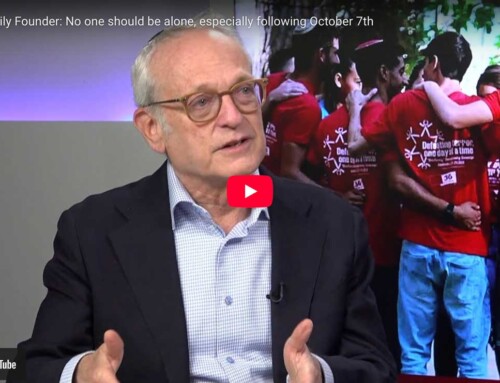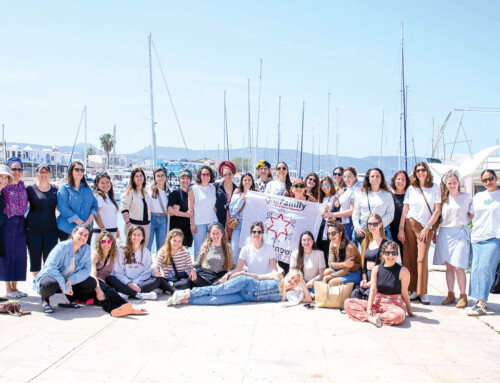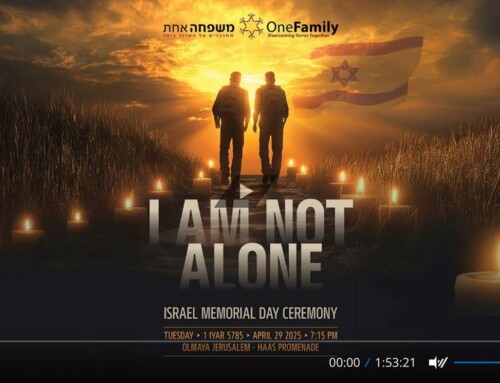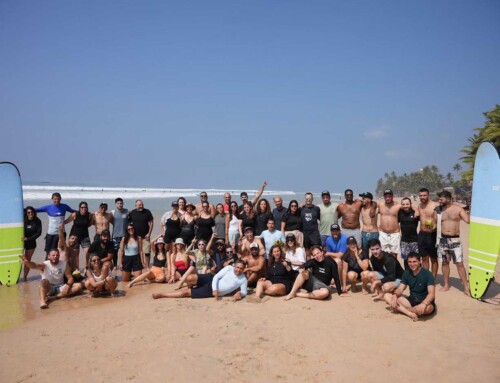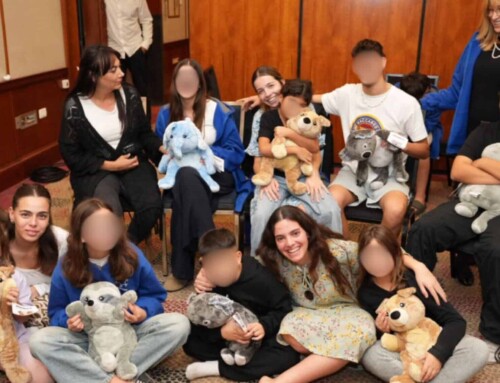The Swords of Iron war that broke out on Simchat Torah added thousands to the roster of the bereaved in Israel. OneFamily is there for them.
Original source: Article published in Israel National News – by Yossi Oshri
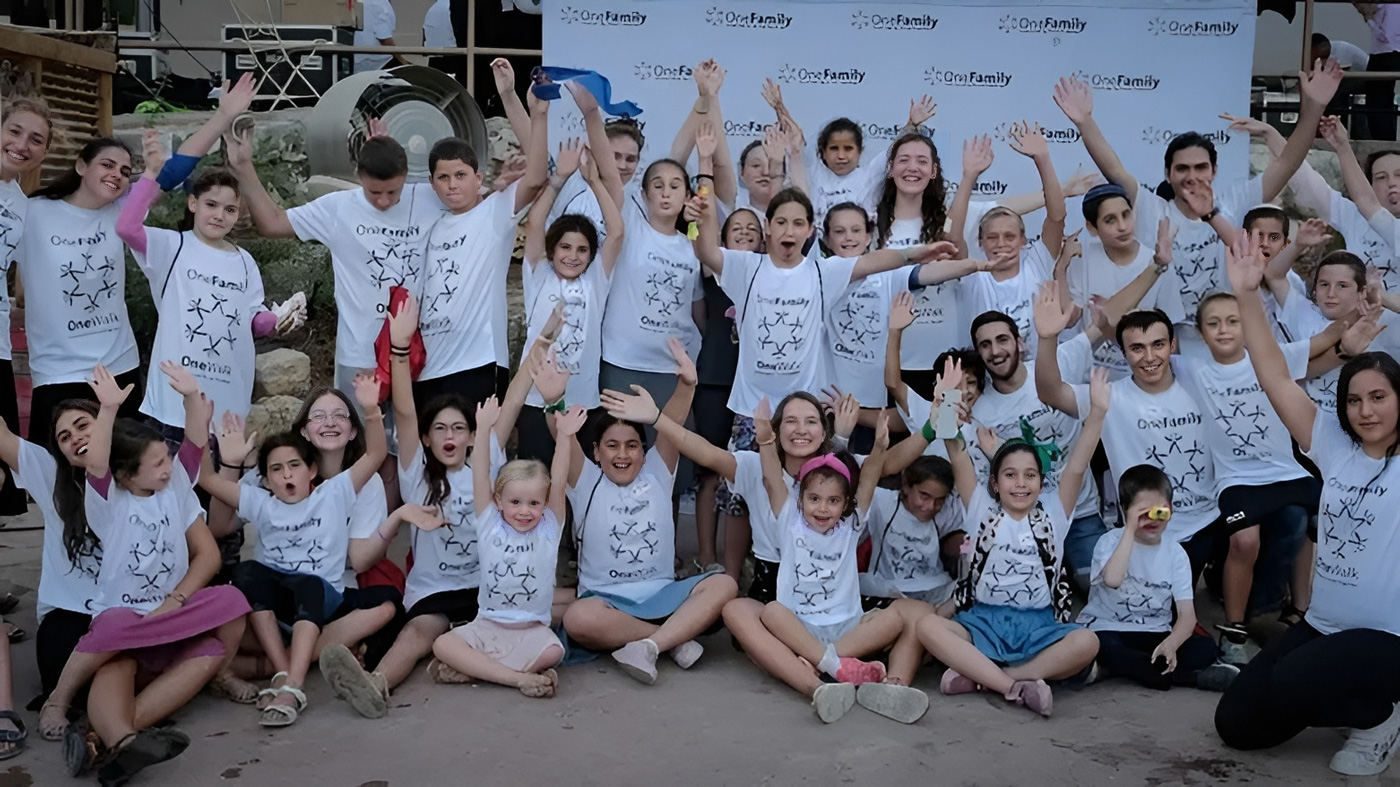
“We have been doing everything the way a family does for 22 years. To always be there for them, to do everything that will allow them to lift their heads and continue on living lives as close as possible to what they were before.” – Chantal Belzberg, head of OneFamily.
“The goal is to embrace the family which finds itself in a hard place and bring them to a place where they do not feel alone anymore, knowing that OneFamily is always there for them.” – Nava Formansky, OneFamily’s Central Region Coordinator:
At OneFamily, which has been coming to the aid of terror victims for twenty-two years, we are facing an unparalleled increase in our activities, from visiting the many wounded in hospitals and their families, to supporting bereaved families and establishing a 24/7 emergency response hot line to meet the needs of residents of Israel’s south – Marc Belzberg, founder of OneFamily.
“Wow, Nava, is that you?! I never thought we would meet again,” called a wounded IDF soldier from his hospital bed.
At the beginning of the week Nava Formansky came to the Tel Hashomer hospital to visit an IDF elite commando unit soldier who had been severely wounded in the war being waged in the south. For Nava, coordinator of the regional office of OneFamily in the center of the country, it was another day following the OneFamily wartime protocol of making the rounds visiting the wounded in hospitals in the area, but she was astounded to hear the soldier’s cry:
“You helped my relatives when they suffered a terror attack in the past. I never dreamed I would join the list of those helped by OneFamily. It really calms me to see you here. I know how much help my wife and children will receive from you as time goes on.”
This was not the only time wounded soldiers recognized Nava. Sometimes it was a repeat of tragedy, with terror hitting the same family a second time. “Yesterday, I visited ‘only 15 wounded soldiers,” she says simply. “Every day we have tens of volunteers who arrive at four hospitals in the central region of Israel, visit the wounded, encourage them and see to their needs. That, for example, is how I discovered that one of the wounded in Ichilov Hospital, a 70-year old man, whose house was burned down by the terrorists, had been left with literally nothing. Within 24 hours, we made sure to provide him with everything he needed. And there was the injured woman from one of the kibbutzim down south who suffered a stroke as a result of the horrors she experienced and is completely paralyzed. I arrived at her bedside and her husband said with relief ‘you are what I am searching for.’ We remained at his side until I helped him in every way I could.”
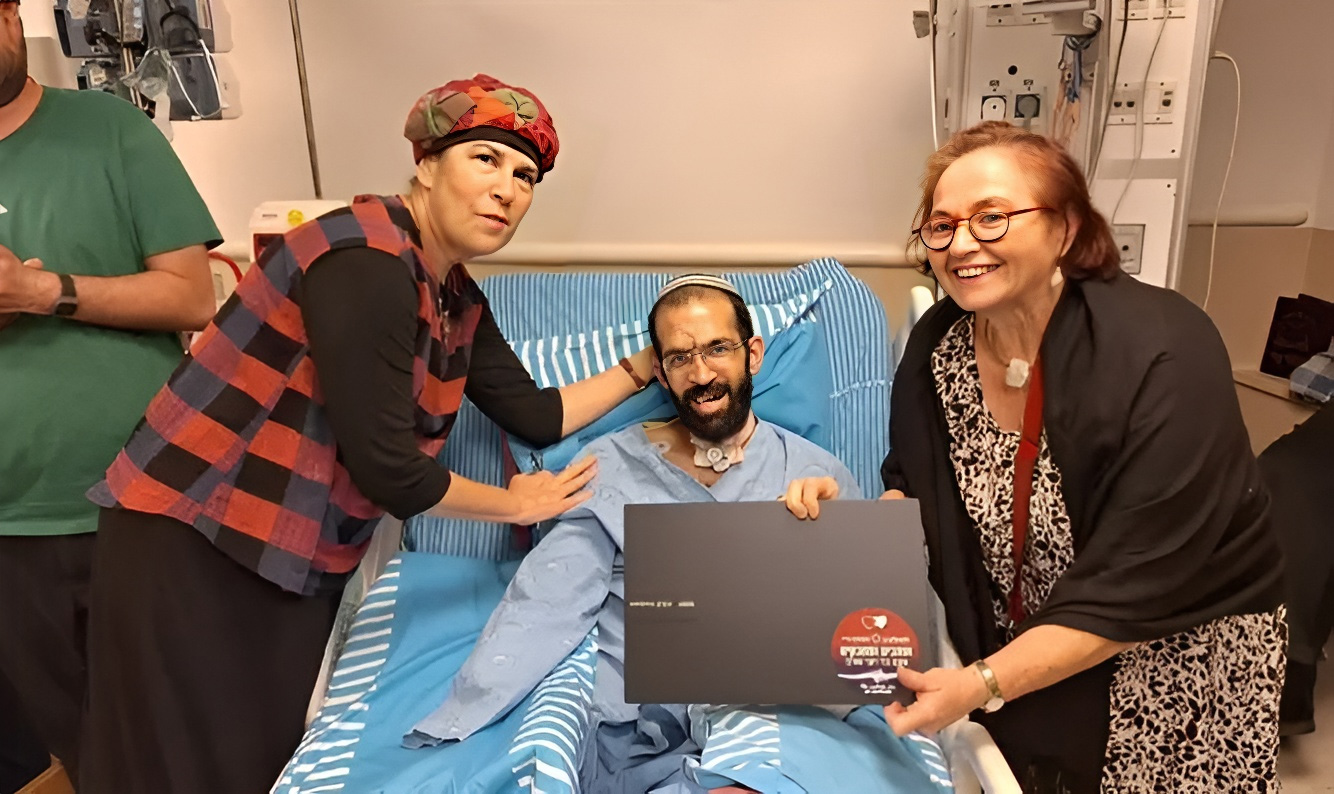
Photo: Amichai Schindler was severely wounded when terrorists broke into the Kerem Shalom community in the Negev on October 7th. He managed to overcome the terrorists who attacked his home and saved his wife and six children. Sigi (on his left) and Moshe Schindler, Amichai’s parents, lost their son Avishai Hy”d in a terrorist attack in Beit Chagai. Sigi Schindler asked us to pray for Amichai’s complete recovery. Nava (right) has brought him a laptop, one of the gifts that OneFamily is giving to wounded soldiers to help them during their recovery..
Nava has been at OneFamily for 21 years, and has remained at the side of over 600 bereaved families, widows, widowers and orphans. In her hometown of Raanana she runs a “Bayit Cham,” an open house, where she welcomes bereaved parents from all over Israel to workshops, lectures, various treatments and other activities. In addition, she is in contact with hospitals in the central Israel region who inform her in real time of the arrival of terror victims. “I go to them, introduce myself, tell them that we are here for them with anything they need, from food and clothing to mental health. If the family has children, we see what their needs are. We do not try to do the work of the Defense Ministry or the National Insurance Institute. We fill in the niches they do not get to.”
In addition to going to hospitals to visit the wounded and injured, she goes to their homes in order to meet their spouses and children and take note of their needs. Sometimes it means sendng a volunteer who spends hours in the hospital at a patient’s bedside allowing family members a much-needed break, sometimes the children benefit from a ‘big brother’ who takes them for a breather or a tension-dispelling fun activity.
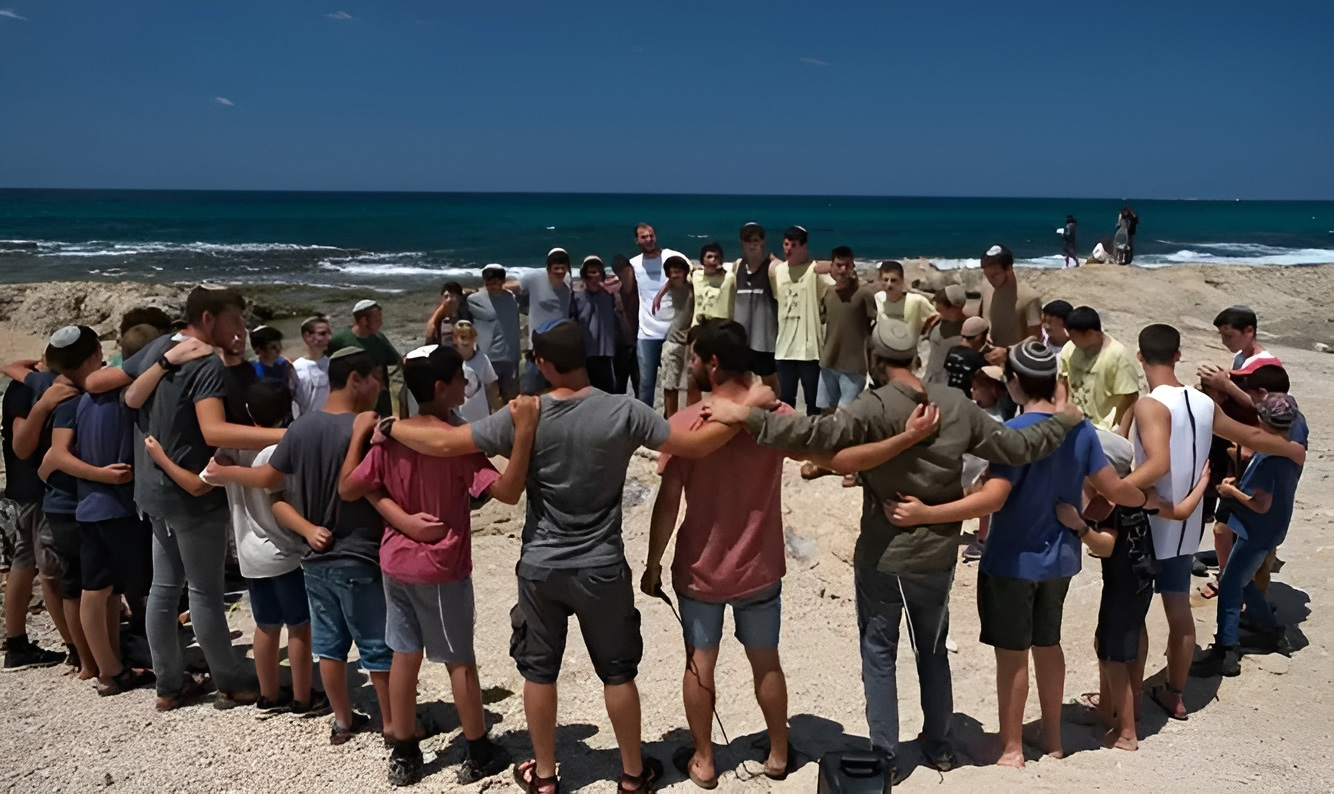
The goal is to embrace the family at this difficult time and show them that they are not alone, that OneFamily is with them all the way.
Nava arrived at Tel Hashomer Hospital soon after the end of the Simchat Torah holiday to visit the first wave of war wounded to arrive there and begin connecting with them. “I brought each one a ceramic mug filled with chocolates and my card, and told them that we are available anytime. I soon realized that I could not handle the massive influx of wounded on my own and added more volunteers to the ranks. Within a few days, we had prepared a chart listing each volunteer and the patients under their charge, which hospital they were in, their contact details, special needs and everything else we learned about each one, so that none of them would fall between the cracks and so that each one would receive ongoing personal care. Our visits are not a onetime thing. Most of the patients have heard of us and await our volunteers eagerly. And we make sure our people bring all kinds of goodies when they visit.”
A circle of loving kindness enclosed two of the wounded several days ago when Nava arrived at the Beit Levenstein Rehabilitation Hospital to visit a patient from a southern kibbutz who had lost a leg in the terror attack on his home. She talked to him and then went on to the next room where the patient was a reserve soldier whose lower body was paralyzed and who asked who else she had visited. When she told him about the patient who had lost his leg, he cried “I don’t believe it! I was there when he was hit – I saved his life! I must see him!” So Nava saw to it that the two met. And there was not a dry eye in the room.
Formansky sometimes acts as a matchmaker, bonding a recent amputee with another who has already experienced successful rehabilitation and can embrace someone in a similar situation. “Sometimes I connect wives of the wounded with one another, sometimes their children. I look for ways to help people who find themselves in parallel complex circumstances. Sometimes a more experienced patient can also help them become aware of the government benefits to which they are entitled.”
As expected, Ketty Feldman, southern region coordinator for OneFamily, has not had a moment’s rest since the war broke out. She is facing challenges of a dimension she has never had to deal with before. During normal times, she is at the side of the many bereaved families who suffered terror attacks in the south. She observes that this is because “today we know that post trauma as a result of a terror attack is a wound that needs treatment and ongoing personal care.”
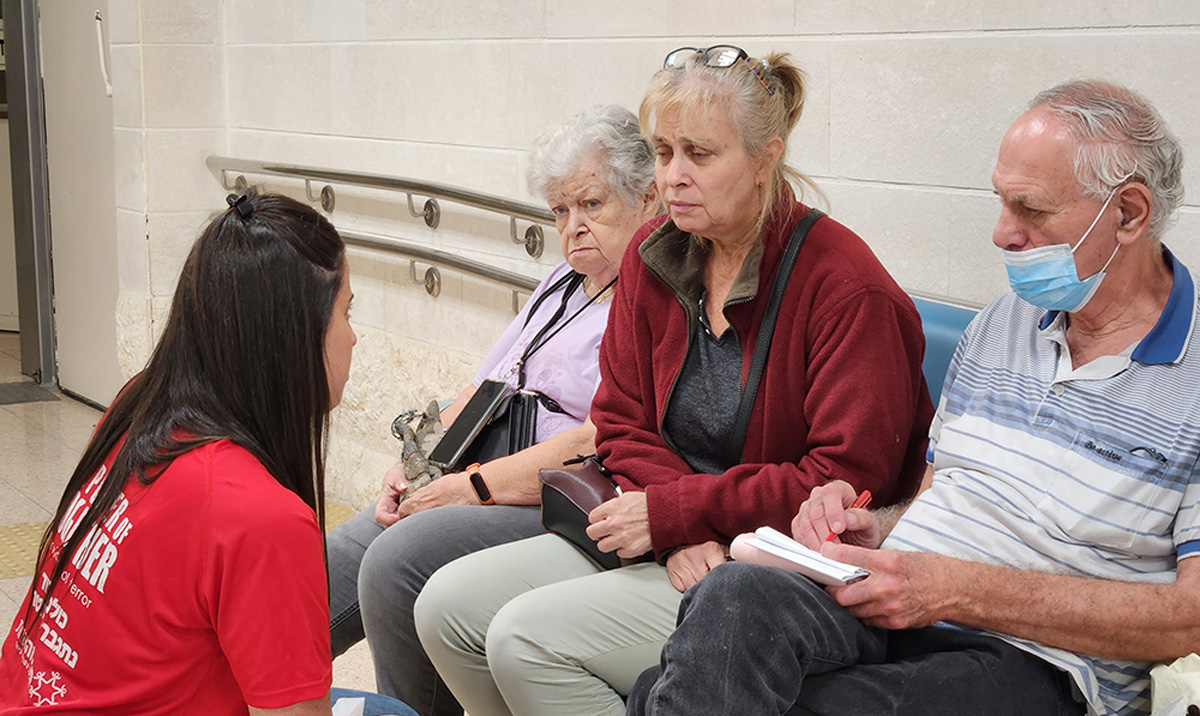
From the very first day of the war, Feldman found herself answering tens of phone calls, but what affected her most were the calls from families who were already bereaved, at whose door tragedy had knocked again as they lost another family member to terror. Some had lost a loved one many years ago, some not that long ago. “I have just returned from two very wrenching visits to two families like that in Beer Sheva,” she describes, “one had lost a son previously and has now lost another and his wife, both slaughtered in their safe room. Their seven-year old hid in the closet and was saved by a miracle.”
Entering a recently bereaved family’s home is especially challenging. “It is hard to find the right words,” she admits. “There is no real way to comfort. One can only hug them. With empathy, with inclusion. Not judgmentally, just by being there for them. That’s the greatness of OneFamily. We are the ones there at the start, and also those who remain with them for the long term. It is a process. My personal vision is to see them able to go from crisis to growth. This is a complex and arduous process, with many ups and downs. This time it is also somewhat different, because we are still at war. I am visiting families while the battle is at its peak. We cannot envision the end. There is so much uncertainty. This is a national event and I find myself at its epicenter.”
During the past few weeks Feldman’s schedule is especially intensive. “I work 24/7. I barely have time to eat. It is hard to want to eat when I hear the terrible stories,” she says and her pain is evident. “I divide my time between Soroka and Barzilai Hospitals, and, or course, the families. This is an enormous challenge, because in the hospitals there is so much transferiing and changeover. I managed to be at some of the funerals, I visited some families during the shiva week and there are those I am getting to now, after they have risen from shiva – I simply hug them and try to make them realize that I will be with them for everything. We help with everything. We have a large staff of volunteers, that gets larger as we need it, and they help in visiting hospitals, organizing data and whatever else we need.”
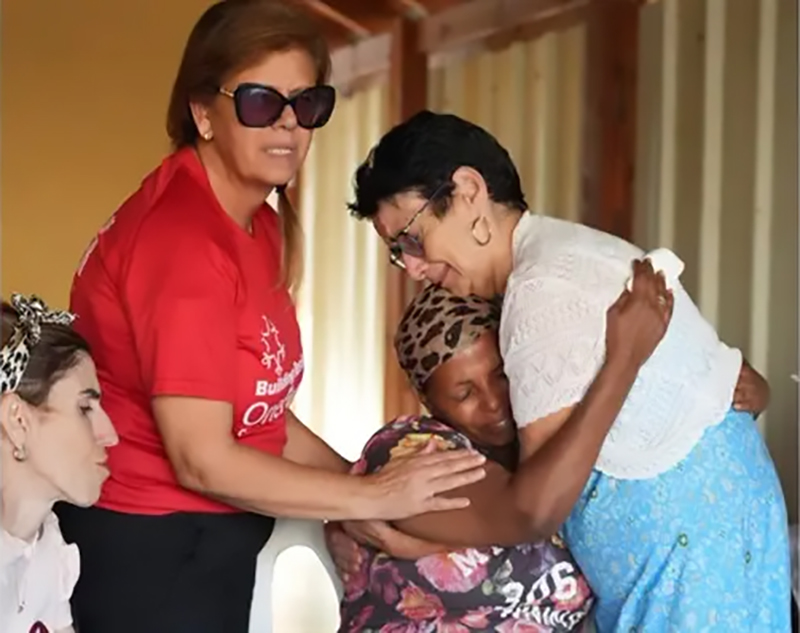
One of the initiatives Feldman developed while on the go, is enlisting the help of veteran bereaved families to help newly bereaved ones. “We go to every family with a bereaved father or mother who tells their own story. At the end, that is what leads to their opening up.. I was at the home of a bereaved mother from Be’er Sheva who lost her daughter in the terror attack at the Be’er Sheva bus station twenty years ago. The two mothers embraced each other and began to talk. We were in Ashkelon at a family who had lost another son who was in the Shabak.
Several years later, their soldier son was killed. I went to their home with a bereaved father who told his story and a discussion opened up. No matter what we say, we cannot console them. But when someone who is a member of the family of bereaved parents arrives, it has a great deal of significance.”
Emergency Response Hotline
In addition to the routine activities whose sheer volume has grown exponentially over the past few weeks, OneFamily has identified various other needs that are falling between the cracks of the overburdened state agencies that are meant to be taking care of them. In response, OneFamily opened a 24/7 emergency response hotline to deal with the many requests that keep coming in. “Before this, we were the ones who turned to people on our own initiative,” says Chaviva, who runs the hotline. “However, the situation has caused people, such as residents of southern Israel, to call us for everything, whether they need help finding a place to live, financial aid, psychological aid, handling money, finding babysitters for the children and much more – thankfully, our emergency center is well-organized and set up to handle all requests.”
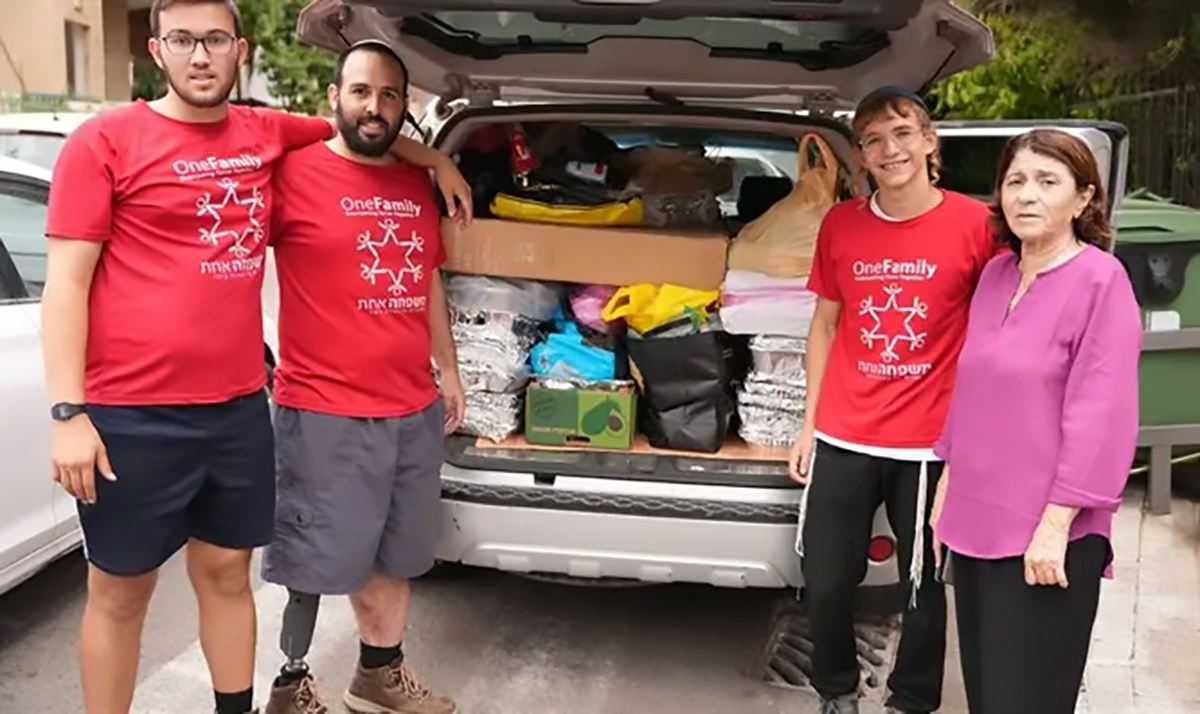
The Emergency Response hotline has already managed to provide answers to thousands of callers. “We publicized how to reach us on every possible platform, and since doing so, we have been deluged by calls. This obviously fills a real need as we find ourselves in a situation that is too vast for the state agencies to handle. As an NGO that provides help during normal times, we have taken up the challenge. For example, we are getting calls from people living more than 7 kilometers from the border who need to be evacuated, and even from people who do reside within the area marked for evacuation, but claim that those in charge have not gotten to them. We often help to overcome bureaucracy, on an operative as well as a technical level.”
Professionals and experts in varied fields heard about the hotline and offered to provide answers to questions in their fields of expertise. “We have hundreds of professional volunteers who examine the needs of those who call and direct them to the place which deals with that specific issue. Every application we receive is posted on a designated whatsapp and dealt with in a short time. Last week alone, we provided 800,000 NIS in financial aid. In addition, in the OneFamily headquarters, each day tens of volunteers bake cakes and prepare food for the families of those wounded. Our volunteers packed hundreds of boxes for the wounded and bereaved filled with basics such as towels, blankets, toothbrushes, toiletries – and treats as well. We enclosed letters and drawings made by children of volunteers who accompanied their parents to our center. Everything was delivered to those in need by other volunteers.
Chaviva has a good many moving stories about those who turned to OneFamily’s hotline for the helping hand that will enable them to get through this challenging period. One, a terror victim living in Sderot, called to report that she had not been evacuated and claimed that her calls to the municipality went unanswered. “I tried to call as well, but there were too many calls for them to manage to answer each one. I turned to the Welfare offices and they promised to help. Two days later she told me that as of yet, there had been no response. I returned to the municipality, where they promised to help right away, but two more days passed and she was still in her home. I began pulling strings and within a short time she was evacuated to a hotel in Bat Yam where the reception clerks refused to accept her claiming overbooking. I stepped in again until an official in the civil defense system found her accommodation in a Tel Aviv hotel.”
Another story was the result of a request from a woman who had been evacuated along with her son from the burning south to a hotel at the Dead Sea. “They fled without even stopping to pack clothes, and managed to launder the few clothes they had with dish soap,” she relates. “The first thing we did was to bring them suitcases brimming with clothes we received from the USA, but we found nothing that fit the wife and mother of the family. Other evacuees benefited from the suitcases’ contents, while we found a volunteer in Jerusalem who went out to shop for clothes. Another volunteer delivered them and even offered to take the mother shopping herself if necessary, so that we can say that both mother and son received a fitting response to their requests.”
At OneFamily, Everyone is Family
Marc and Chantal Belzberg are the driving force behind OneFamily, which they founded 22 years ago and which is aiding thousands of terror victims today, providing multiple activities to help them rejoin society and regain their love for life: psychological rehabilitation, family reinforcement, therapeutic workshops, support groups, retreats, help with finances and employment and much, much more, all while taking them under the wings of an extended family. “We pay attention to every member of the family and their individual needs, making sure they are in a good place, recovering and feeling alive,” says Chantal. “We do not allow anyone to fall and stay down. We established a youth division for this purpose where our volunteers act as a kind of “big brother/big sister” to children who have lost family members in a terror attack. They are there for them 24/7 and accompany them to every significant event in their lives, helping them return to taking part in the routine of everyday life.”
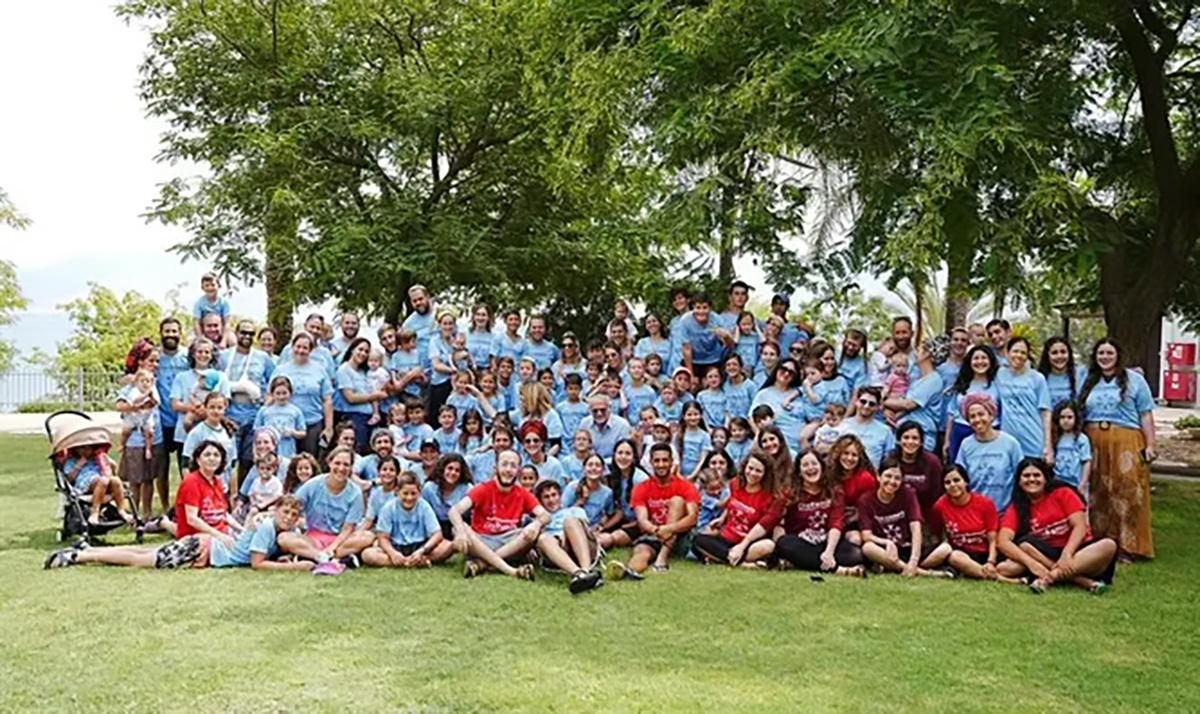
“My father was murdered in a terror attack when I was seven,” says one of the youngsters accompanied by a volunteer. “It was at the beginning of the second Intifada, when every day brought another terror attack and new victims. OneFamily volunteers came to our home bringing light and strength with them. My counselor became my older brother and I would call him every time I felt myself slipping into some kind of crisis mode, whether because I heard of another terror attack or simply because I am also an ordinary teen. The summer camp we took part in rejuvenated our souls, it was the first time I could find respite with others who had suffered experiences like mine, and we overcame the challenges together. Today, looking back, I do not know how I could have continued on in life without OneFamily.”
“These are sights we have not seen in our lifetime since the Holocaust,” Chantal says with a shiver. “All our work over all these years did not prepare us for these tragedies. Our mission was always to be family for all of those to whom we proffer assistance. We have been doing everything the way a family does for 22 years. To always be there for them, to do everything that will allow them to lift their heads and continue on living lives as close as possible to what they were before. But the proportions have risen enormously now. Our staff always was compact and hard working. Now we must expand it significantly and enlist many more facilitators in order to reach everyone and continue what we have been doing all the years, but with a much larger range of participants.
Belzberg stresses that as opposed to other organizations which provide an initial response, OneFamily continues to accompany and remain available for the wounded and bereaved families for many years.
“OneFamily’s bereaved father’s choir is one of the many projects we initiated to add moments of togetherness to the lives of those who have lost their loved ones to terror attacks.”
“When everyone returns to the routines of normal life, we will still be there for them,’ Marc explains. “We will be there to help them. We have to be prepared for that, with a program and staff that can provide our unique form of assistance, all this while continuing to be there for the hundreds of families who have been nestling under our comforting wings for years.”
Translated from the Hebrew weekly Besheva.

